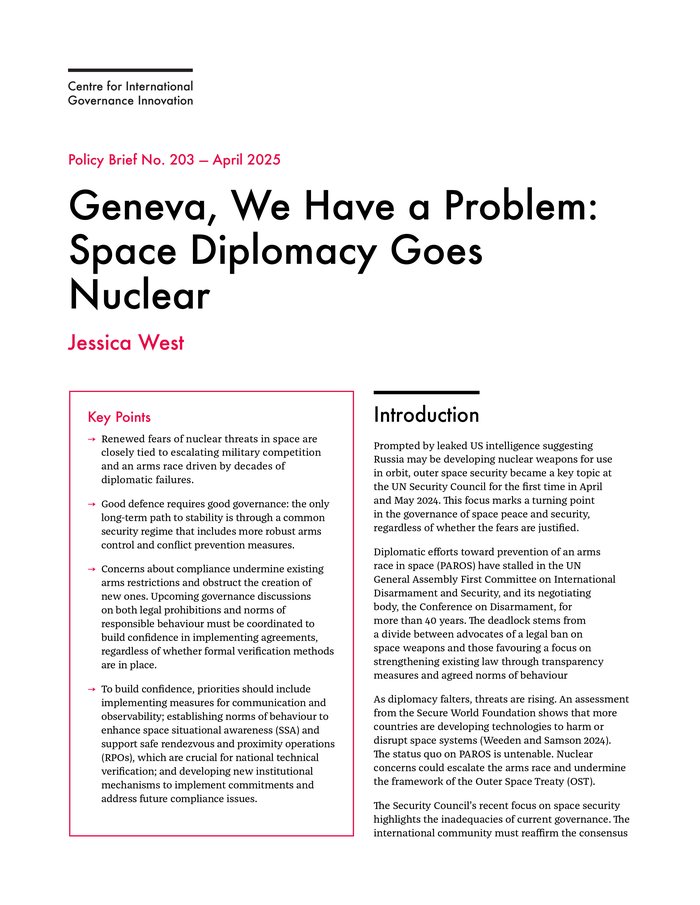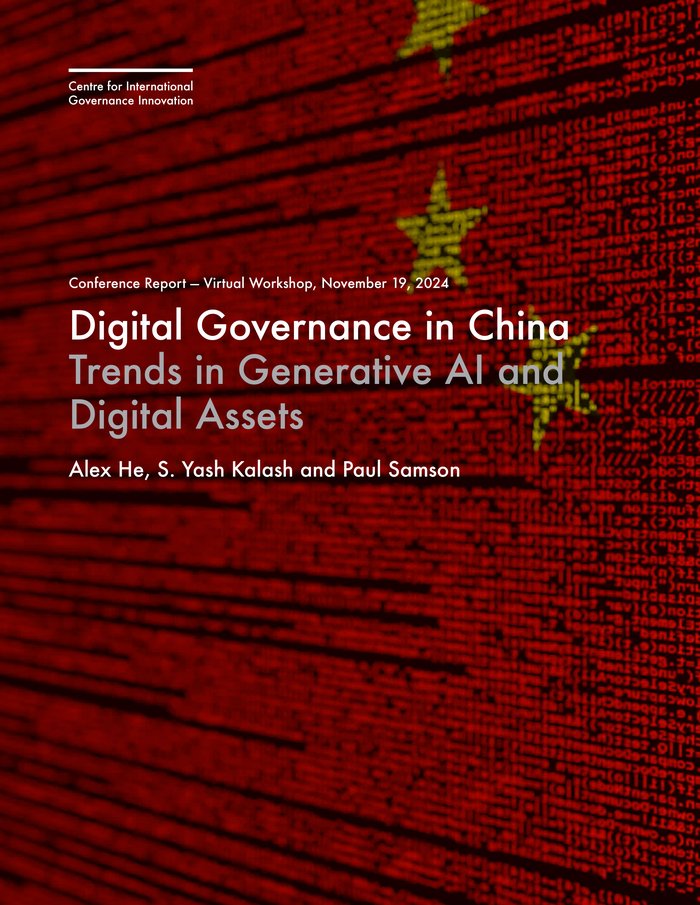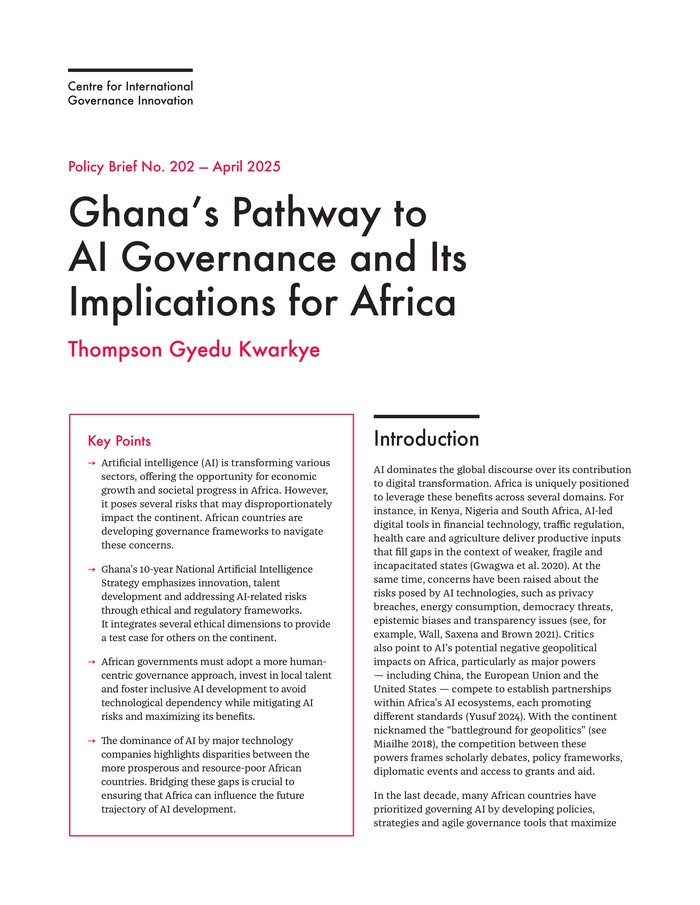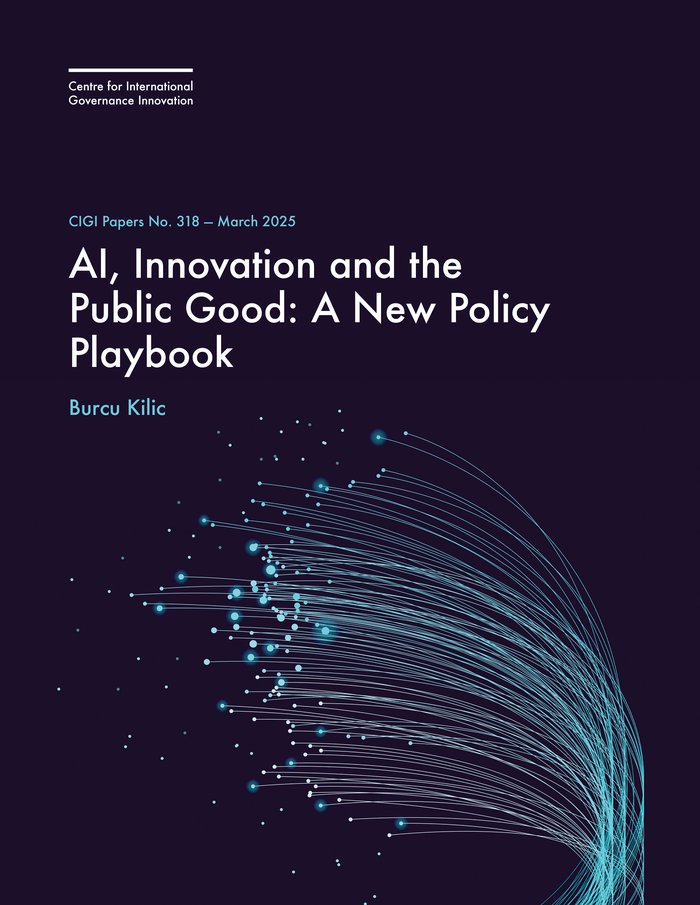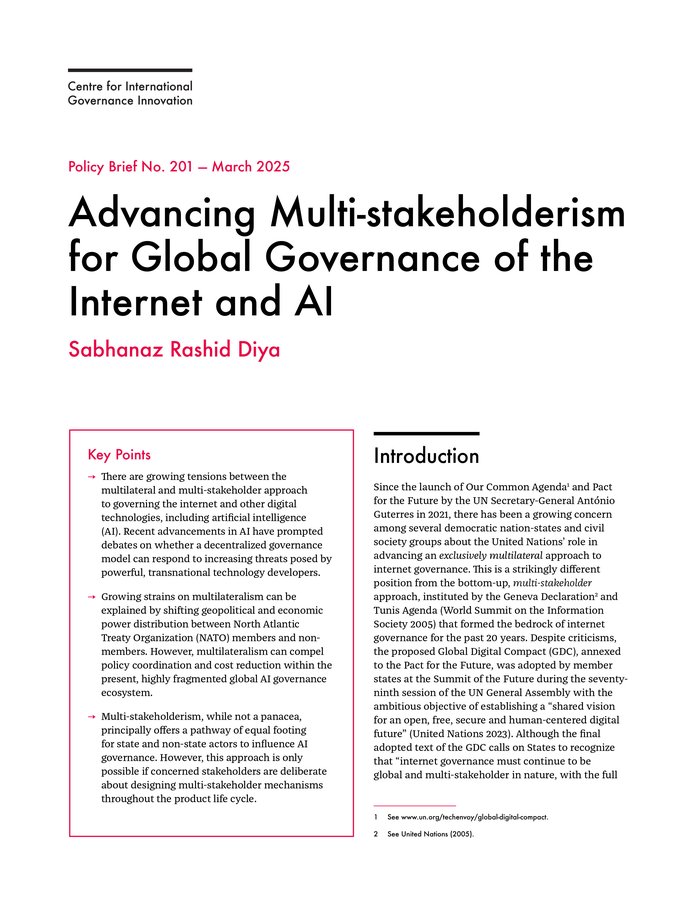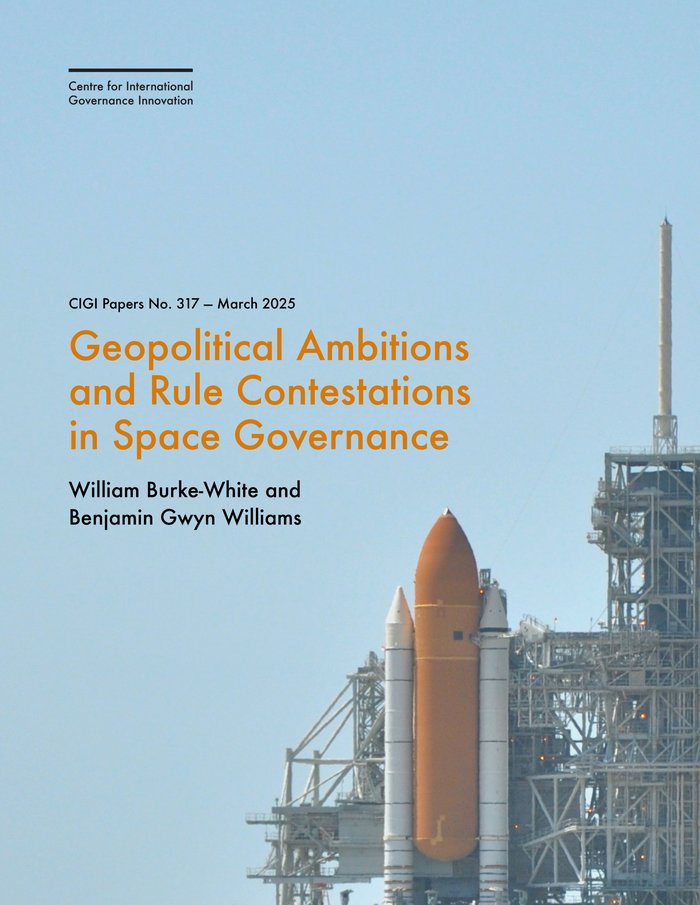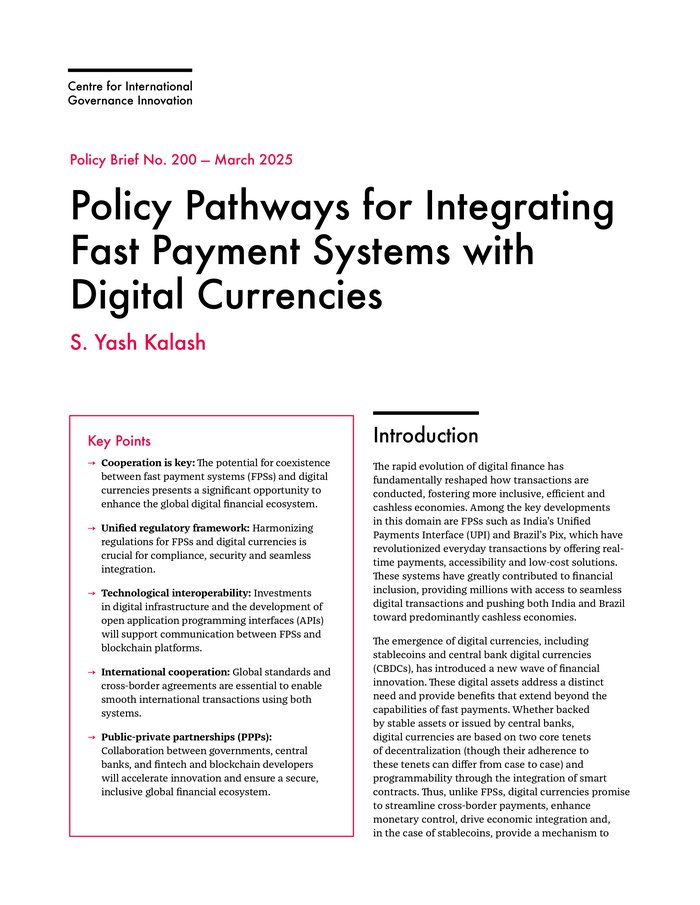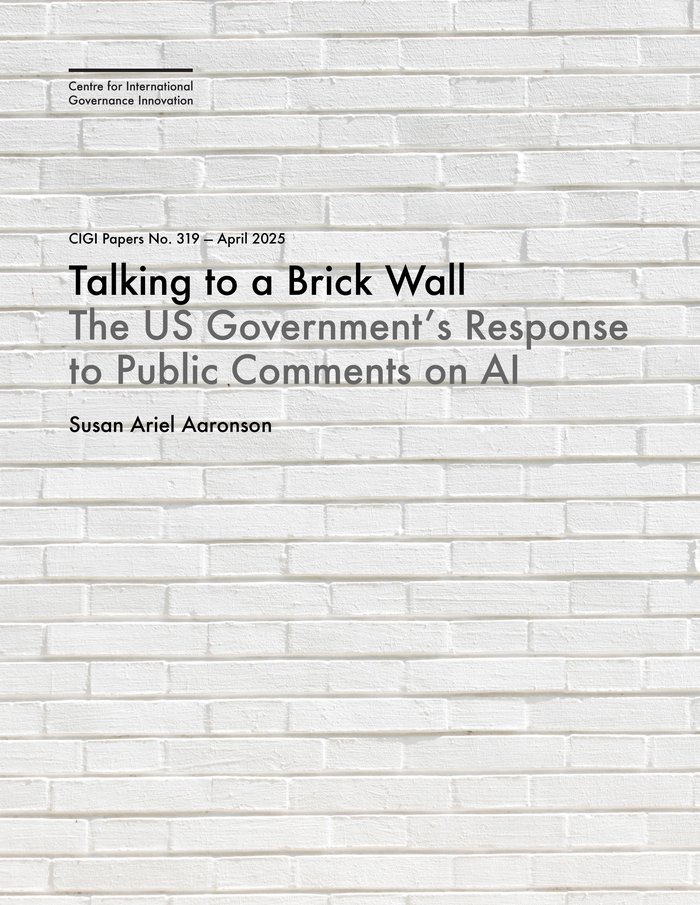
Publications
Publishing is an integral part of achieving CIGI’s mission. CIGI publishes papers, special reports, policy briefs, essays and conference reports that are outputs of CIGI’s research and have been through a review process.
Featured


Essay Series
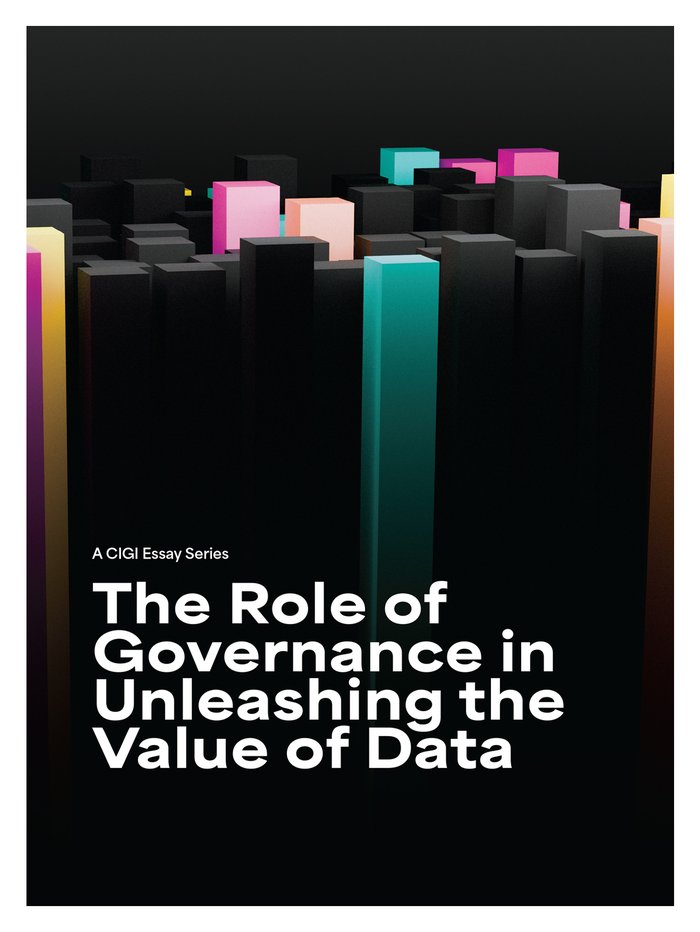
The Role of Governance in Unleashing the Value of Data
In 2018, the essay series Data Governance in the Digital Age anticipated some of the data governance issues that have emerged, such as surveillance capitalism and the economics of data, but did not cover data valuation in depth. Data is increasingly central to economic activity and how we make sense of the world, but it is still not valued in either national or corporate balance sheets. There is no accepted methodology to measure data’s value — value that depends on its usefulness in a particular context, which is framed by individual or societal perspectives, governance rules and regulations, and input from different stakeholders. Four themes are explored in this essay series: the current state of global data governance; different perspectives on notions of value; governance frameworks to unleash the value of data; and mechanisms for governance cooperation.
CONTRIBUTORS
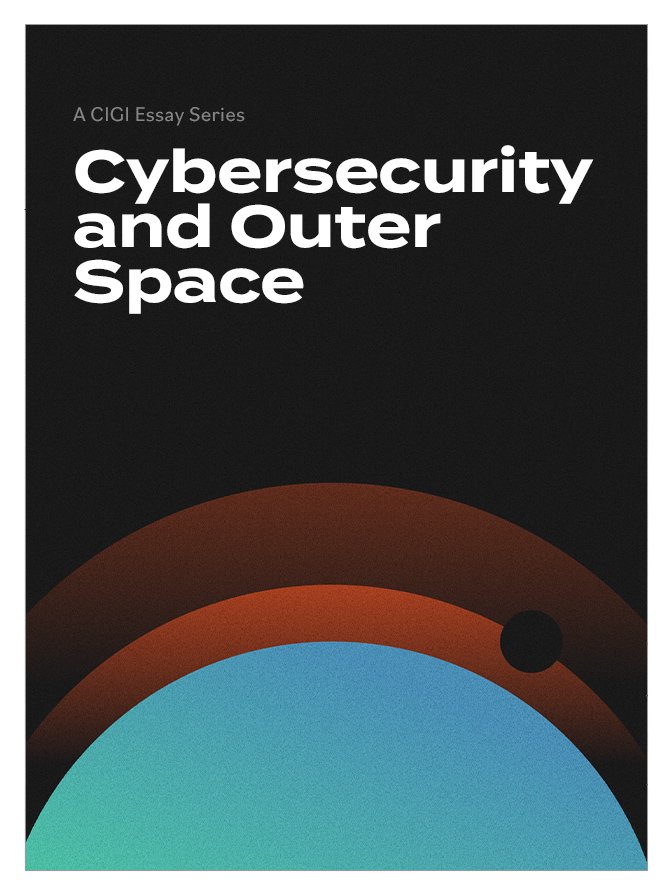
Cybersecurity and Outer Space
The dramatic expansion of space capabilities has transformed space systems into critical infrastructure for many aspects of human society and for national security. With opportunities for global societal benefits come risks. The global governance framework remains weak and contested. Vulnerabilities now exist with space systems, and these are especially pronounced in the face of cyberthreats. We now confront a volatile “space-cyber nexus,” which this essay series explores across a diverse and wide range of perspectives. The series is organized around three themes: space security and risk; international governance challenges; and global perspectives and the pursuit of inclusivity.
CONTRIBUTORS
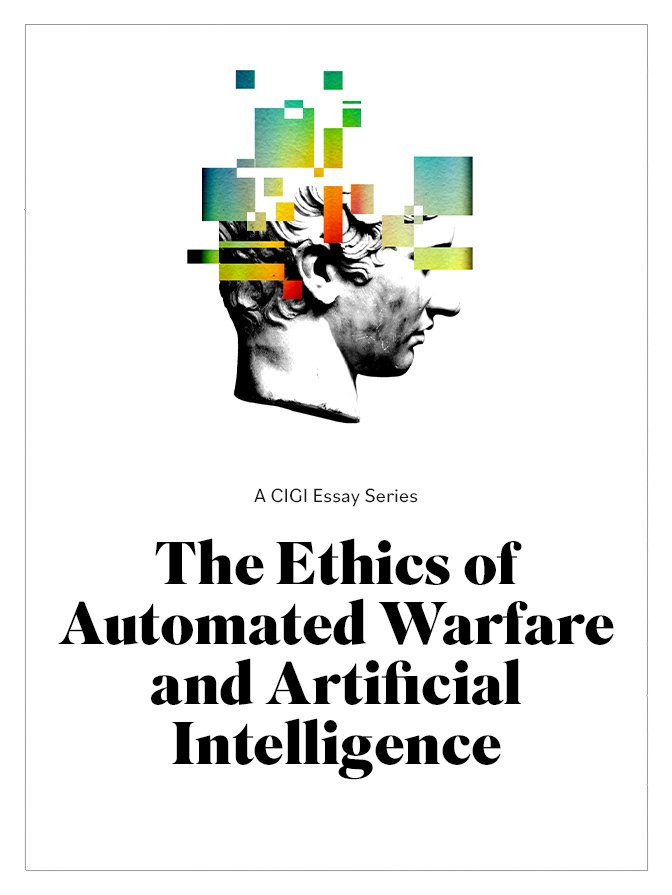
The Ethics of Automated Warfare and Artificial Intelligence
The most complex international governance challenges surrounding artificial intelligence (AI) today involve its defence and security applications — from killer swarms of drones to the computer-assisted enhancement of military command-and-control processes. These essays emerged from discussions at a webinar series exploring the ethics of AI and automated warfare hosted by the University of Waterloo’s AI Institute.
CONTRIBUTORS
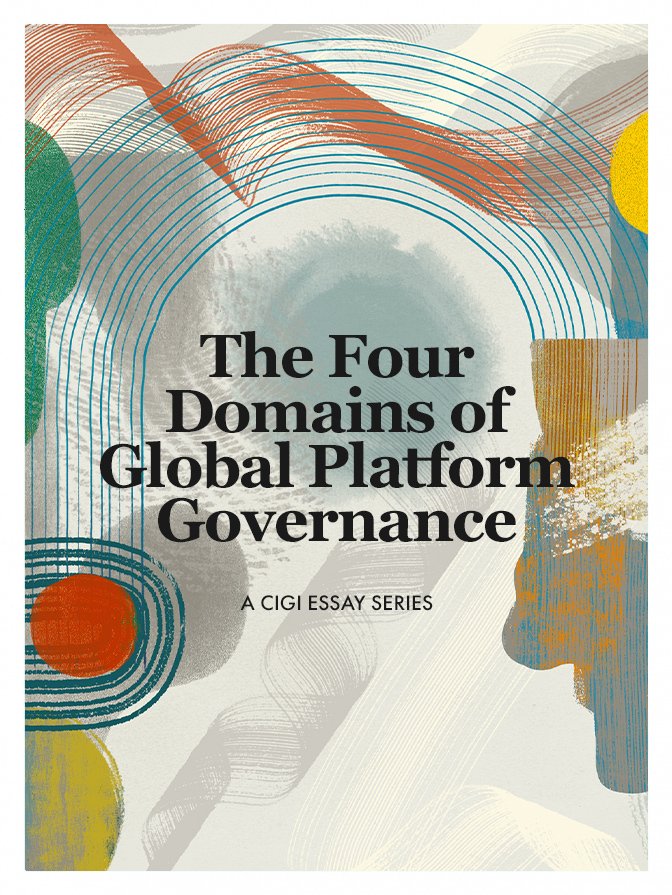
The Four Domains of Global Platform Governance
In the span of 15 years, the online public sphere has been largely privatized and is now dominated by a small number of platform companies. This has allowed the interests of publicly traded companies to determine the quality of our civic discourse, the character of our digital economy and, ultimately, the integrity of our democracies. This essay series brings together a global group of scholars working in four distinct domains of the platform governance policy discourse: content, data, competition and infrastructure.
CONTRIBUTORS

Situating Canada in a Changing World: Constructing a Modern and Prosperous Future
The late Canadian diplomat and commentator John Wendell Holmes believed that the best public policy emerged out of an appreciation of history and context. This essay series, sponsored by the Holmes Trust, reflects on six contemporary themes in Canadian foreign and security policy, with historians considering the background of each issue and practitioners responding with a view to the future. Together, the essays demonstrate the value of history to a decision maker’s analytical calculus and offer practical suggestions to inform Canada's response to the challenges ahead.
CONTRIBUTORS
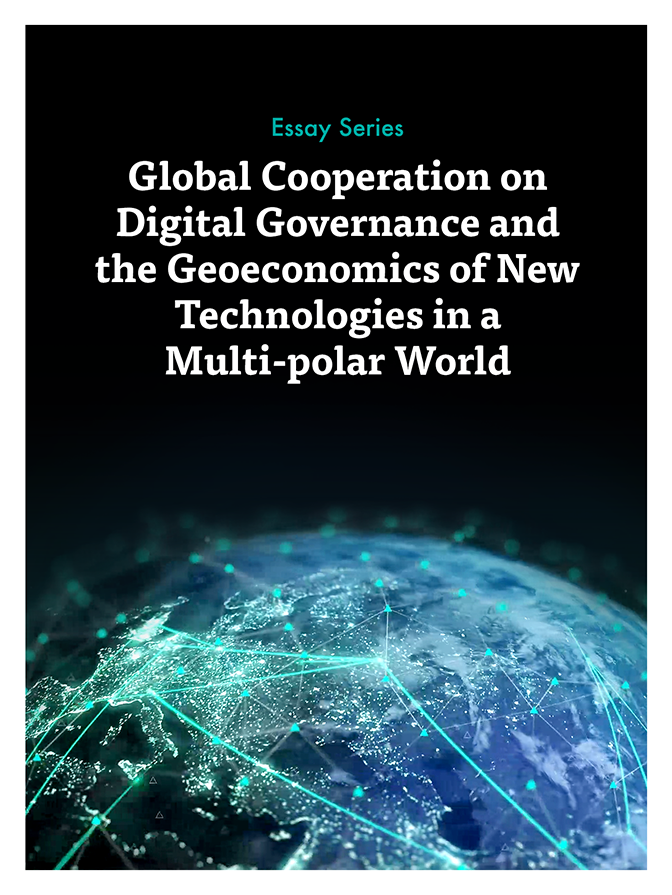
Global Cooperation on Digital Governance and the Geoeconomics of New Technologies in a Multi-polar World
In November 2021, the Centre for International Governance Innovation (CIGI) joined King’s College London (KCL) to host a virtual conference as part of KCL’s Project for Peaceful Competition. It brought together an intellectually and geographically diverse group of experts to discuss the geoeconomics of new digital technologies and the prospects for governance of the technologies in a multi-polar world. The papers prepared for discussion at the conference are collected in this series. An introduction summarizes (in heavily abbreviated form) the principal analytical conclusions emerging from the conference, together with the main policy recommendations put forward by participants.
CONTRIBUTORS
.gif)
Modern Conflict and Artificial Intelligence
Autonomous systems are revolutionizing our lives, but they present clear international security concerns. Despite the risks, emerging technologies are increasingly applied as tools for cybersecurity and, in some cases, cyberwarfare. In this series, experts explore digital threats to democracy and security, and the geopolitical tensions they create.
CONTRIBUTORS
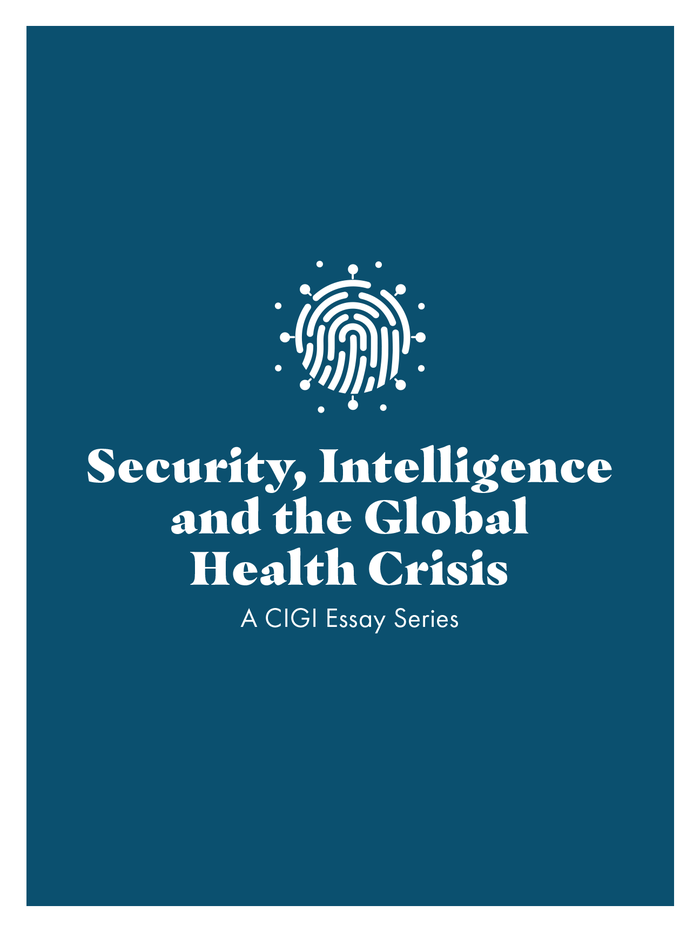
Security, Intelligence and the Global Health Crisis
The impact of COVID-19 both globally and in Canada has raised important questions about best practices with regard to global and domestic health surveillance, early warning and preparedness. Critical to an understanding of these issues is a clear-sighted appreciation of the interface between health security and national security. As the world embarks on an intense effort to explain the onset of the pandemic and to learn lessons from the global response, it will be vital to develop and sustain a public policy debate about the role of security and intelligence institutions in protecting societies against pandemic outbreaks. This essay series — designed to bridge academic and practitioner knowledge — aims to make a high-impact contribution to that debate.
CONTRIBUTORS
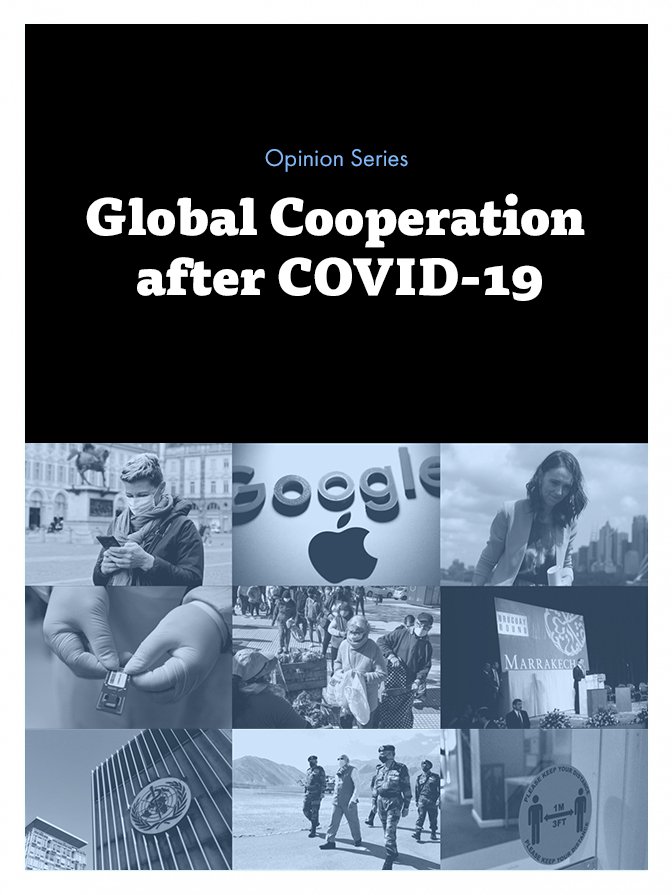
Global Cooperation after COVID-19
We are in the midst of fighting the first phase of the COVID-19 crisis, but it is already clear that the impacts will be manifold and enduring. It is not too early to reflect on the lasting impact that the outbreak is sure to have on global cooperation, globalization, faith in public action and in science, social cohesion, and the trade-off between civil liberties and personal privacy.
CONTRIBUTORS
- Rohinton P. Medhora
- Bessma Momani
- E. Richard Gold
- Ilona Kickbusch
- Jean Lebel
- Michael Chertoff
- Susan Etlinger
- Teresa Scassa
- Darrell Bricker
- Donald Bobiash
- Melissa Hathaway
- Jennifer Welsh
- Myra J. Tawfik
- Hongying Wang
- Manjeet Kripalani
- José María Fanelli
- Benno Ndulu
- Beatrice Weder di Mauro
- Mark Kruger
- Simon J. Evenett
- Hector Torres
- Taylor Owen
- Ben Scott
- Arif Z. Lalani
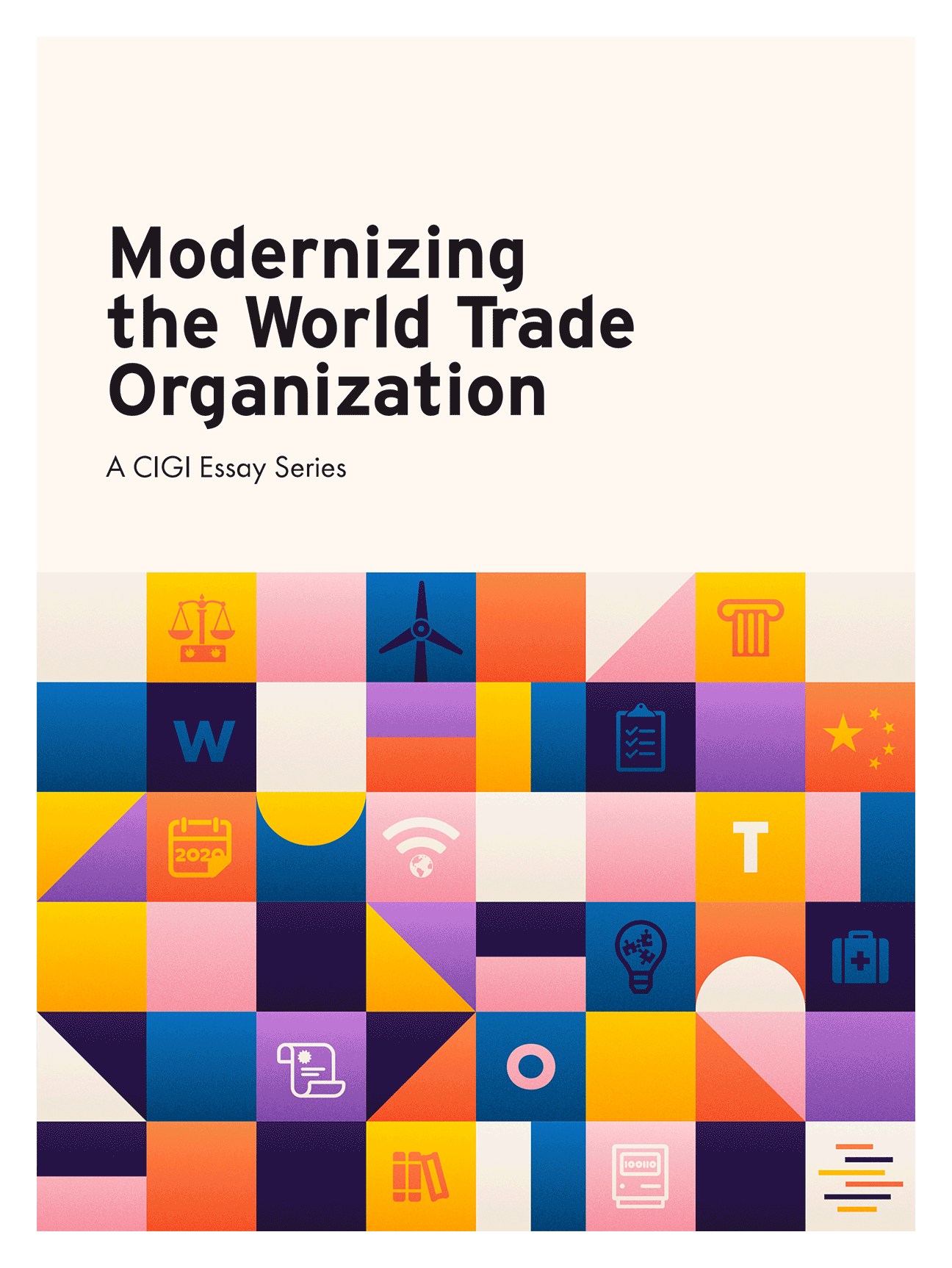
Modernizing the World Trade Organization
An essay series on the World Trade Organization's response to rapid economic, political, social, technological and environmental change.
CONTRIBUTORS
- Oonagh E. Fitzgerald
- Rohinton P. Medhora
- Thomas Cottier
- Bernard M. Hoekman
- Petros Mavroidis
- Valerie Hughes
- Giorgio Sacerdoti
- Laura Lane
- Penelope Naas
- Risa Schwartz
- Judy Whiteduck
- Aaron Cosbey
- Andrei Marcu
- Chin Leng Lim
- Spyros Maniatis
- Jim Stanford
- Mira Burri
- Dan Ciuriak
- Henry Gao
- Balakrishnan Rajagopal
- Chios Carmody
- Amrita Narlikar
- Debra Steger
